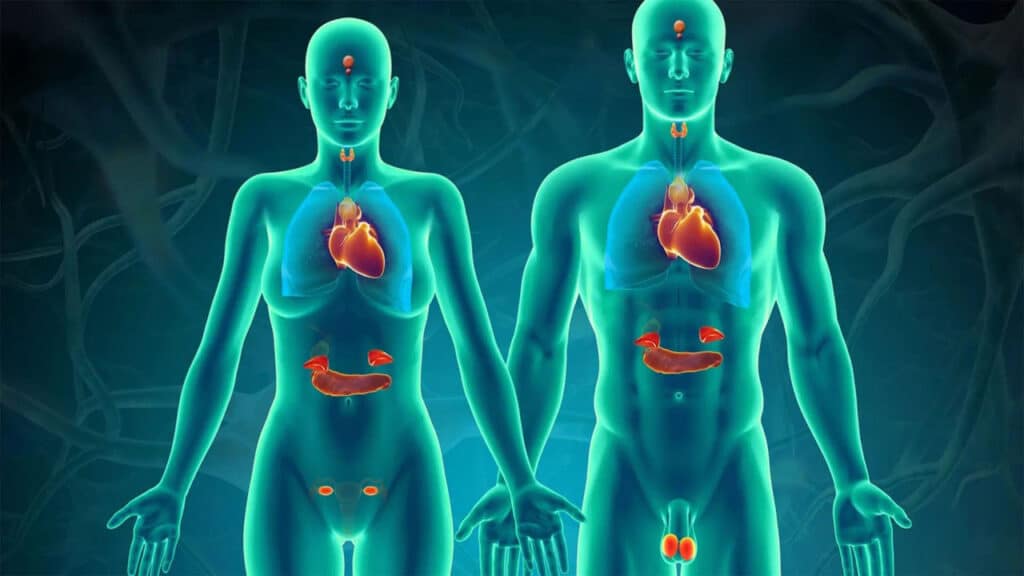You might think of hormones as acting on the parts of the body that aren’t hormones, and it’s true that a lot of them do that. What you also have, however, are tropic hormones. These influence the very same glands that produce hormones in the first place. The endocrine system really is all interconnected.
Take thyroid-stimulating hormone (TSH). As you might guess, you need this to make the thyroid gland work properly and produce thyroid hormones. It’s also a hormone in its own right, being released from the anterior pituitary gland.
The anterior pituitary gland is an important one when it comes to tropic hormones. In addition to TSH, it’s responsible for adrenocorticotropic hormone (ACTH), which stimulates part of the adrenal gland to produce glucocorticoids. Then there’s luteinizing hormone (LH) to stimulate the gonads (producers of steroid hormones), which works with follicle-stimulating hormone (FSH) in the reproductive system.
Of course, for this part of the endocrine system to be functioning properly, you need the anterior pituitary gland to work. That means there need to be other tropic hormones stimulating the pituitary gland in the first place. These particular tropic hormones come from the hypothalamus. As for the hypothalamus, it reacts to the level of thyroid hormones being produced by your thyroid.
As you may have noticed, this makes quite a circle. It’s called the hypothalamic-pituitary-thyroid (HPT) axis, and it has a very important role to play in your body’s metabolism and in how you react to stress. This system isn’t unique to humans and can be found in the vast majority of invertebrates. The exceptions, like sloths, are known for their strange physiology.
Having your different glands and hormones so closely connected means that if one part goes wrong, it can impact everything else. Problems with the thyroid, pituitary or hypothalamus, or in the levels of their respective hormones, need to be identified quickly so appropriate treatment can help restore them.
Tropic hormones often mark the beginning of a series of reactions that eventually results in non-tropic hormones being released by the appropriate glands and acting on the non-endocrine parts of the body. You can have one without the other. If there are any questions about your hormone levels, problems can generally be identified with a blood test. If they need correcting, hormone therapy or surgery may be appropriate depending on the exact circumstances.




